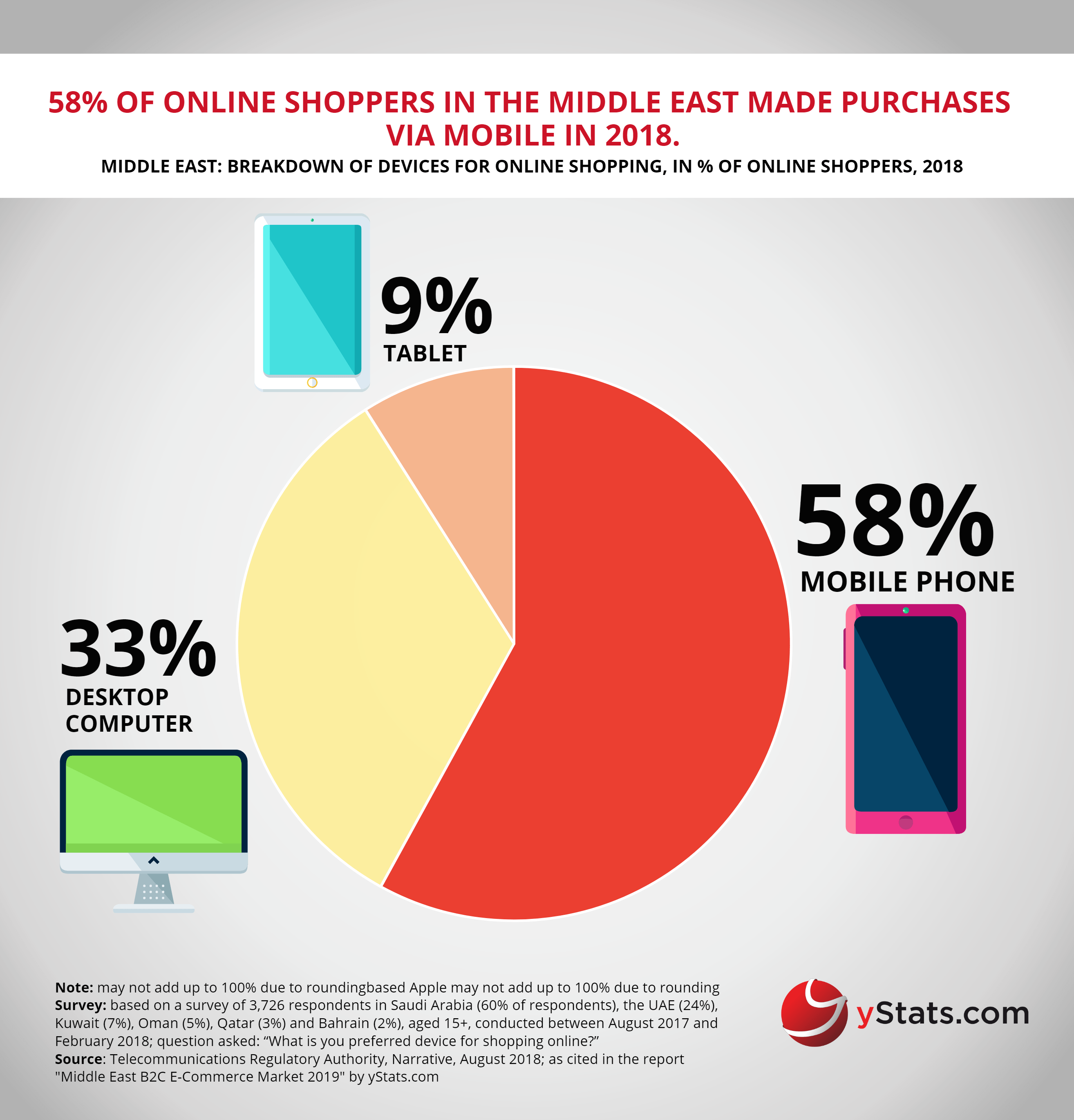Germany-based secondary market research provider yStats.com has released a new report entitled “Middle East B2C E-Commerce Market 2019”. The publication summarizes the key trends and projections for online retail sales in 10 Middle Eastern countries for 2020 and beyond. According to the report’s findings, high smartphone penetration rates and the rise of mobile shopping is driving the growth of B2C E-Commerce across the region.

By loading the video, you agree to YouTube's privacy policy.
Learn more
B2C E-Commerce sales in the Middle East to nearly double by 2020
In 2020, B2C E-Commerce sales in the Middle East are projected to reach nearly twice the value they were in 2017. The main growth drivers include high Internet and smartphone penetration rates across the region. In selected markets including the UAE, Qatar and Bahrain, more than three-quarters of the population go online via mobile devices. As a result, mobile phone was also the preferred mode of accessing E-Commerce websites and making purchases online, according to surveys cited in the yStats.com report.

Fashion and electronics lead in regional B2C E-Commerce
Fashion items was the leading product class purchased by digital buyers in the Middle East. Electronics was another major B2C E-Commerce category. Furthermore, online groceries is a fast growing Internet retail segment in the Middle East. For example, in Saudi Arabia, the online share of total retail sales of groceries is projected to increase ten-fold by 2023 compared to 2018.
International players rival local E-Commerce companies in the Middle East
Cross-border online shopping is a popular activity among digital buyers in the Middle East. International E-Commerce platforms such as Amazon, AliExpress and eBay outrank local websites in terms of website traffic stemming from this region. In the UAE, more online shoppers bought internationally in 2018 than in 2016, and in Israel, cross-border pure-plays accounted for almost two-thirds of the market value.


